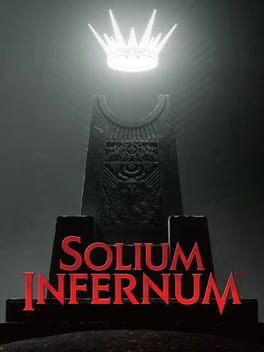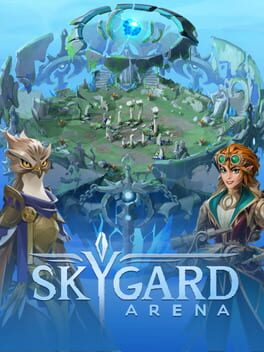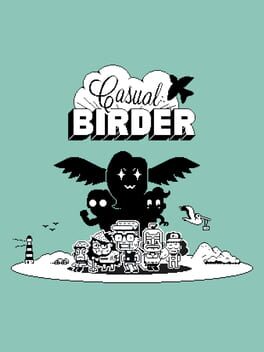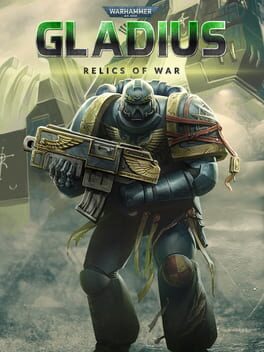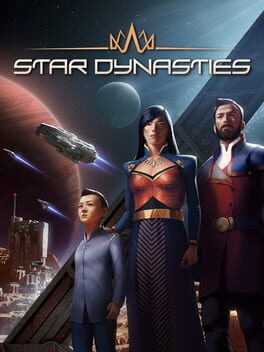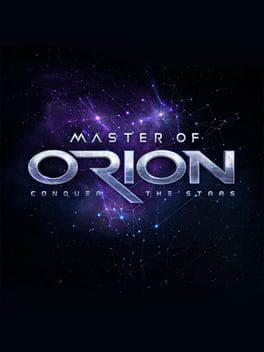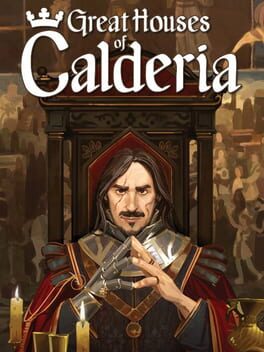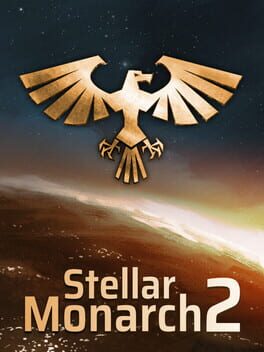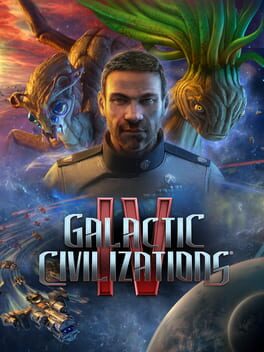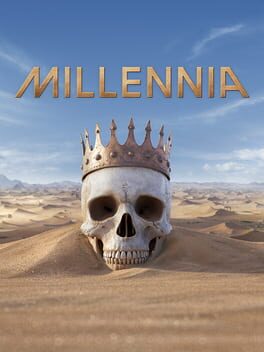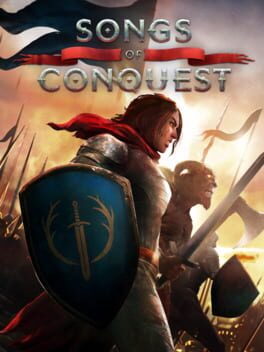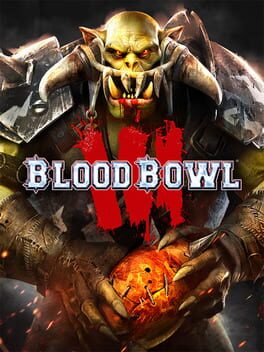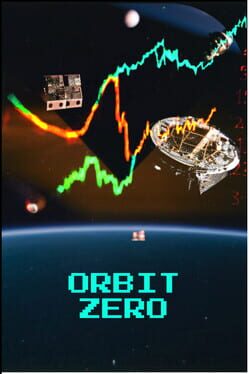sirvalkyerie
2024
I think this is just a fantastic, fun little strategy game. I think it's a really exceptional twist and spin on the nature of things like Civ or Total War. The aesthetic is great, art is gorgeous. The usage of the little cards and rituals and ploys feels like one of the best boardgame style mechanic implementations in a video game I've ever experienced. I like how structured the combat is and how most of the game is spent maneuvering all about the other facets of gameplay aside from combat.
It's just really neat. Very inventive. It feels nothing like other strategy games, while still feeling like a very interesting strategy game in its own right. I just think the whole thing is very creative, very unique and still quite fun. I think ultimately when you do get good at the game, which is not easy!, the AI gets too simple to beat. After a little it's just not very hard anymore and can feel samey. So unless you have friends for multiplayer it's just gonna lack the same replayability as something like Civ or Crusader Kings or Total War. But it's still very neat, and very worth your time.
It's just really neat. Very inventive. It feels nothing like other strategy games, while still feeling like a very interesting strategy game in its own right. I just think the whole thing is very creative, very unique and still quite fun. I think ultimately when you do get good at the game, which is not easy!, the AI gets too simple to beat. After a little it's just not very hard anymore and can feel samey. So unless you have friends for multiplayer it's just gonna lack the same replayability as something like Civ or Crusader Kings or Total War. But it's still very neat, and very worth your time.
TBD
This is a review of the ongoing Closed Beta. I may well return to this on release and re-review it when changes are made.
It's a weird little thing. It's pretty cool. Turn-based tactics gameplay mixed with MOBA inspired heroes and objectives. All multiplayer. I actually think this is a complete breath of fresh air in the multiplayer scene, it's really neat. As for a closed beta, for a game still reasonably early in development, this is about as good as it gets.
There's only 12 heroes so far but each one has a skin that changes up their abilities a tad. Not enough to make them altogether different but different enough that it's more like there's 18 different heroes. Since you use three in a game, that's probably not enough for a full release to provide enough variety and strategic depth. But each hero so far is pretty nicely designed and their kits work pretty well even if they all feel a tinge generic (like someone asked ChatGPT to make them a LoL hero).
What the game really needs is just more of every thing. More maps, bigger maps, a different win condition/game mode. More heroes. It'd be nice if there were item builds for each hero, especially ones that could change in game (like Teamfight Tactics). It'd be nice if there was a draft mode so you'd have no mirror matches / would be nice if there were better or buffed hero synergies. A 1v1v1 mode could be cool. There just needs more stuff. More to do, more depth, more uniqueness. Playing the standard PvP mode right now with the number of heroes that are currently in the game is going to get old very quickly. It's like playing a card game with 10 cards.
But what exists is very fun. And quite good. It's a great foundation to build on. A great place to start. It just needs more of everything. I'll definitely come back to check it out on full release.
It's a weird little thing. It's pretty cool. Turn-based tactics gameplay mixed with MOBA inspired heroes and objectives. All multiplayer. I actually think this is a complete breath of fresh air in the multiplayer scene, it's really neat. As for a closed beta, for a game still reasonably early in development, this is about as good as it gets.
There's only 12 heroes so far but each one has a skin that changes up their abilities a tad. Not enough to make them altogether different but different enough that it's more like there's 18 different heroes. Since you use three in a game, that's probably not enough for a full release to provide enough variety and strategic depth. But each hero so far is pretty nicely designed and their kits work pretty well even if they all feel a tinge generic (like someone asked ChatGPT to make them a LoL hero).
What the game really needs is just more of every thing. More maps, bigger maps, a different win condition/game mode. More heroes. It'd be nice if there were item builds for each hero, especially ones that could change in game (like Teamfight Tactics). It'd be nice if there was a draft mode so you'd have no mirror matches / would be nice if there were better or buffed hero synergies. A 1v1v1 mode could be cool. There just needs more stuff. More to do, more depth, more uniqueness. Playing the standard PvP mode right now with the number of heroes that are currently in the game is going to get old very quickly. It's like playing a card game with 10 cards.
But what exists is very fun. And quite good. It's a great foundation to build on. A great place to start. It just needs more of everything. I'll definitely come back to check it out on full release.
2022
I was very excited to get my Playdate when I bought it, but in the end only fumbled around with it a little before tossing it in a drawer and forgetting about it. I loved the idea of the little thing and it did fill me with a lot of glee when it first arrived, but I never much committed to giving it a real go when it finally did show up in my mailbox. Now that Mars After Midnight has released, I've decided I gotta pop it back open and really give it some time.
And with that, came me revisiting Casual Birder. It's short, very charming, some dorky writing and overall very reminiscent of Legend of Zelda style gameplay with some Undertale-ish dialogue. It's a little too try-hardy sometimes and a little too quirky for the sake of quirky at times. But it's still fun. It's certainly a shining star of Season One on the Playdate and one of the few free Season One games that attempts, and succeeds, at being a real full and complete game, rather than a gimmick or an activity of some sort.
I thought about giving a lower score. But felt maybe I was being stingy. It's not the longest or most complex or most innovative game. But it was fun, I will remember it, I did really enjoy it and I think anyone with a Playdate would score this amongst their favorite titles on the device. Simple shouldn't be a penalty for a game. Sometimes really good games can be really simple ones.
And with that, came me revisiting Casual Birder. It's short, very charming, some dorky writing and overall very reminiscent of Legend of Zelda style gameplay with some Undertale-ish dialogue. It's a little too try-hardy sometimes and a little too quirky for the sake of quirky at times. But it's still fun. It's certainly a shining star of Season One on the Playdate and one of the few free Season One games that attempts, and succeeds, at being a real full and complete game, rather than a gimmick or an activity of some sort.
I thought about giving a lower score. But felt maybe I was being stingy. It's not the longest or most complex or most innovative game. But it was fun, I will remember it, I did really enjoy it and I think anyone with a Playdate would score this amongst their favorite titles on the device. Simple shouldn't be a penalty for a game. Sometimes really good games can be really simple ones.
I've got an idea. What if you made a 4x game but with only 1 x? Welcome to Warhammer 40,000: Gladius where as always in the 41st (42nd now I guess) millennia there is only war.
There's an interesting quirk here in the end. 40k is all about war, it's a wargaming tabletop miniature game and its setting is pretty much always gory violent bloody splatterfest. Space Marines tearing xenos in twain and tyranids gobbling up humans and giant pus-filled nurglings vomiting shit onto sexy masturbating Drukharis.
Just is what it is. It's over the top and violent and crazy. So there's no room for diplomacy and turtling and science victories. Nope. You've got a 4x game that's hex-based with cities and buildings and wonders and strategic resources centered entirely around warfare. Pumping out unit after unit with buff after buff and bits of equipment designed to keep feeding the never ending war engine until you obliterate every other worthless xeno scum on the planet Gladius (or you're gross and you're playing as the xenos. Blech!)
And you get something odd but not at all surprising. The most in depth and tactically engaging warfare in any 4x game I've ever played. Something that absolutely torches Civ. But there's nothing in the way of interest for the other Xs of the 4x genre. Sure there's some things on the map and interestingly procedurally generated terrains and topographies to make fights deeper. But this is just producing military units to fight wars.
It's thematically fantastic. But gameplay wise it kinda doesn't deliver. This feels like a bad format for what's essentially a Total War style game. There just feels like better ways to make this. Something in the frame of Star Wars Empire at War could be better. But a game that materially functions a lot like Civ only to end up working like any other turn based war game. It's just square pegs and round holes.
Does it work? Sure. Kind of. It's different, and it's interesting. But it is a bit like watching a great movie on your TV instead of in the theater. Sure it's still good but this just isn't the best venue. There's better ways to make a combat focused game like this. Total War, XCom, Starcraft. There's just other tried and true formulas for this sort of thing. I can appreciate the desire to do things different but at some point this feels like being different for the sake of being different.
There's an interesting quirk here in the end. 40k is all about war, it's a wargaming tabletop miniature game and its setting is pretty much always gory violent bloody splatterfest. Space Marines tearing xenos in twain and tyranids gobbling up humans and giant pus-filled nurglings vomiting shit onto sexy masturbating Drukharis.
Just is what it is. It's over the top and violent and crazy. So there's no room for diplomacy and turtling and science victories. Nope. You've got a 4x game that's hex-based with cities and buildings and wonders and strategic resources centered entirely around warfare. Pumping out unit after unit with buff after buff and bits of equipment designed to keep feeding the never ending war engine until you obliterate every other worthless xeno scum on the planet Gladius (or you're gross and you're playing as the xenos. Blech!)
And you get something odd but not at all surprising. The most in depth and tactically engaging warfare in any 4x game I've ever played. Something that absolutely torches Civ. But there's nothing in the way of interest for the other Xs of the 4x genre. Sure there's some things on the map and interestingly procedurally generated terrains and topographies to make fights deeper. But this is just producing military units to fight wars.
It's thematically fantastic. But gameplay wise it kinda doesn't deliver. This feels like a bad format for what's essentially a Total War style game. There just feels like better ways to make this. Something in the frame of Star Wars Empire at War could be better. But a game that materially functions a lot like Civ only to end up working like any other turn based war game. It's just square pegs and round holes.
Does it work? Sure. Kind of. It's different, and it's interesting. But it is a bit like watching a great movie on your TV instead of in the theater. Sure it's still good but this just isn't the best venue. There's better ways to make a combat focused game like this. Total War, XCom, Starcraft. There's just other tried and true formulas for this sort of thing. I can appreciate the desire to do things different but at some point this feels like being different for the sake of being different.
2021
I've been playing lots of 'solid-but-not-great' games lately, and this is another to put on the pile.
Star Dynasties is like Crusader Kings II but with many less mechanics, and in space. The game is basically 100% event driven with some action points to spend per turn instead of turn based with substantial empire management like in CK2. You get some good and you get some bad.
There are, what feels like, more events. Entire game is spurred on my melodramatic feudal happenings. This is very engaging, and I think genuinely even better than Crusader Kings. But that's about where the 'better than Crusader Kings' compliments end. The menus are harder to navigate, it's easy to get stuck on or behind certain menus or have events that need decisions get buried in a maze of UI pop ups. There aren't enough hotkeys to simplify navigation. There just aren't enough options for deep family management and the screens don't pleasingly allow you to dig through them.
The empire management is just too threadbare. The systems don't even have actual planets or show planet views. They just elude to the idea that people live there somewhere. Giving the game far less character. At least in Crusader Kings you have cultures and a real world map so you know what these things and places look like. In Star Dynasties you have almost no lore on a generated map that gives you very little to sink your teeth into or to RP. There's just so very little set dressing.
It's not that Star Dynasties isn't good. I very much like the events and the purely event driven space soap opera. I just think the actual mechanics within are too thin. And then the lore, limited family sizes and poor UI really lessen the 'give a shit' factor.
If you are someone who likes the idea of Crusader Kings but finds it either too complicated or feudal Europe not interesting, Star Dynasties could very well be for you. It's certainly a far, far better attempt at the CK-like genre than Great Houses of Calderia.
Star Dynasties is like Crusader Kings II but with many less mechanics, and in space. The game is basically 100% event driven with some action points to spend per turn instead of turn based with substantial empire management like in CK2. You get some good and you get some bad.
There are, what feels like, more events. Entire game is spurred on my melodramatic feudal happenings. This is very engaging, and I think genuinely even better than Crusader Kings. But that's about where the 'better than Crusader Kings' compliments end. The menus are harder to navigate, it's easy to get stuck on or behind certain menus or have events that need decisions get buried in a maze of UI pop ups. There aren't enough hotkeys to simplify navigation. There just aren't enough options for deep family management and the screens don't pleasingly allow you to dig through them.
The empire management is just too threadbare. The systems don't even have actual planets or show planet views. They just elude to the idea that people live there somewhere. Giving the game far less character. At least in Crusader Kings you have cultures and a real world map so you know what these things and places look like. In Star Dynasties you have almost no lore on a generated map that gives you very little to sink your teeth into or to RP. There's just so very little set dressing.
It's not that Star Dynasties isn't good. I very much like the events and the purely event driven space soap opera. I just think the actual mechanics within are too thin. And then the lore, limited family sizes and poor UI really lessen the 'give a shit' factor.
If you are someone who likes the idea of Crusader Kings but finds it either too complicated or feudal Europe not interesting, Star Dynasties could very well be for you. It's certainly a far, far better attempt at the CK-like genre than Great Houses of Calderia.
2016
Is it good? Kinda. Is it bad? No. Is it worth playing? Maybe.
The graphic quality is quite nice, so let me start by giving that a shout. The species screens and the planet menu views are very pleasing. Very pleasing. The races are interesting and while they follow fairly stereotypical archetypes they're well designed and unique enough compared to other games and narratives. The GNN updates are funny, informative and also pretty high quality.
The game itself is rather simple. Plays more like a simpler Civ than it does other space 4x games. It's not bad by any means, it's just not especially engaging. If you like the idea of Civ but easier and in space you'll probably get along with this well. If you've ever found Endless Space to be too complicated, this may also be for you. It's certainly not a bad game. If you like 4x games it's worth some time. But I wouldn't pay anywhere close to full price. There's just not enough. Not enough meat, not enough to sink in to, not enough to care about. Planets aren't interesting enough or distinct enough. There's a billion to settle, no real maluses for settling too many or too close to one another so it doesn't really provide interesting interplay or choice. You just settle every planet you can manage to settle that's near you and juggle whatever maluses it may or may not get against the bonuses they provide. You can pretty easily move pops around which is fantastic but it also means that there's never a time where it'd be worth not settling a planet. Because if it grows too large to support itself you just ship citizens off that planet to another one that can take them. If it grows too slow you just bring pops to it from elsewhere.
Techs and such are similar. When you have a million settled planets any of them can build ships meaning that you don't have to make interesting choices between building armies and building other buildings. You can churn out ships from some subset of planets while doing research on others and farming on others. This is pretty cool and rewarding but it also means the choices feel fake. Your empire can fill every need all of the time.
In Civ you may have a city that simply cannot grow enough food so you'll need to constantly provide it with trade routes from your cities that do grow food. Which means you have less trade routes with external civs that produce better trade value. You may not be able to settle a city in a certain spot because it'll never be able to grow enough citizens to work enough tiles to be productive. And you can't simply import and export your pops. So now you have to be more selective on where you settle even though most of the map is theoretically settle-able. In Stellaris, most of the map just flat out isn't inhabitable at all (for better or worse) until quite late into the game. So where you do settle and where you can settle are either important decisions early on or they're no brainers to they're aspirational things you're attempting to achieve.
In Master of Orion you're just spamming colony ships from one planet while building your army on another and building every money-producing and research-producing building you can elsewhere. The specialization is nice and friendly to the player but comes at such little expense that you're just clicking everything for the sake of everything without being met by any challenge, passive or direct.
The casualness of this is welcome. And it is a positive. But it is also the reason why you'll have a time limit on MoO. At some point you're gonna get bored. You're gonna play your third playthrough and realize there's no more depth to it. There's nothing more waiting for you. No tricks or special events left. The real sin is the lack of anomalies or events or sense of the unknown that comes from the exploration phase of most 4x games. Instead you just wind up with kind of nothing. And I really mean that. The individual planets have no real character or special effects nor are there any interesting things to find on the map like Stellaris's anomalies and archaeological sites or Civ's tribal villages and natural wonders.
A game as wide as a universe and shallow as a rain puddle with some pretty set dressings. It's cool. It's worth a visit if you're a fan of the genre. It's not a mold breaker or a must play.
The graphic quality is quite nice, so let me start by giving that a shout. The species screens and the planet menu views are very pleasing. Very pleasing. The races are interesting and while they follow fairly stereotypical archetypes they're well designed and unique enough compared to other games and narratives. The GNN updates are funny, informative and also pretty high quality.
The game itself is rather simple. Plays more like a simpler Civ than it does other space 4x games. It's not bad by any means, it's just not especially engaging. If you like the idea of Civ but easier and in space you'll probably get along with this well. If you've ever found Endless Space to be too complicated, this may also be for you. It's certainly not a bad game. If you like 4x games it's worth some time. But I wouldn't pay anywhere close to full price. There's just not enough. Not enough meat, not enough to sink in to, not enough to care about. Planets aren't interesting enough or distinct enough. There's a billion to settle, no real maluses for settling too many or too close to one another so it doesn't really provide interesting interplay or choice. You just settle every planet you can manage to settle that's near you and juggle whatever maluses it may or may not get against the bonuses they provide. You can pretty easily move pops around which is fantastic but it also means that there's never a time where it'd be worth not settling a planet. Because if it grows too large to support itself you just ship citizens off that planet to another one that can take them. If it grows too slow you just bring pops to it from elsewhere.
Techs and such are similar. When you have a million settled planets any of them can build ships meaning that you don't have to make interesting choices between building armies and building other buildings. You can churn out ships from some subset of planets while doing research on others and farming on others. This is pretty cool and rewarding but it also means the choices feel fake. Your empire can fill every need all of the time.
In Civ you may have a city that simply cannot grow enough food so you'll need to constantly provide it with trade routes from your cities that do grow food. Which means you have less trade routes with external civs that produce better trade value. You may not be able to settle a city in a certain spot because it'll never be able to grow enough citizens to work enough tiles to be productive. And you can't simply import and export your pops. So now you have to be more selective on where you settle even though most of the map is theoretically settle-able. In Stellaris, most of the map just flat out isn't inhabitable at all (for better or worse) until quite late into the game. So where you do settle and where you can settle are either important decisions early on or they're no brainers to they're aspirational things you're attempting to achieve.
In Master of Orion you're just spamming colony ships from one planet while building your army on another and building every money-producing and research-producing building you can elsewhere. The specialization is nice and friendly to the player but comes at such little expense that you're just clicking everything for the sake of everything without being met by any challenge, passive or direct.
The casualness of this is welcome. And it is a positive. But it is also the reason why you'll have a time limit on MoO. At some point you're gonna get bored. You're gonna play your third playthrough and realize there's no more depth to it. There's nothing more waiting for you. No tricks or special events left. The real sin is the lack of anomalies or events or sense of the unknown that comes from the exploration phase of most 4x games. Instead you just wind up with kind of nothing. And I really mean that. The individual planets have no real character or special effects nor are there any interesting things to find on the map like Stellaris's anomalies and archaeological sites or Civ's tribal villages and natural wonders.
A game as wide as a universe and shallow as a rain puddle with some pretty set dressings. It's cool. It's worth a visit if you're a fan of the genre. It's not a mold breaker or a must play.
I really appreciate the ambition. I really, really respect the idea of tackling a fascinating genre that is occupied by basically one major player, Crusader Kings. But there's just too many missteps. Performance is bad, the game is quite laggy. The UI is opaque and confusing. The game moves too quick. Too little is explained, the game itself is quite hard.
I understand wanting to add depth to Crusader Kings' non-war related events. Really lean into the roleplay and social drama, the intrigue and backstabbing of medieval politics. The finagling for favors that wound up putting the most unexpected courtiers on the thrones of Europe's most prestigious courts.
But we don't quite get that here. Managing an entire family instead of mainly focusing a single character is just too unwieldy. The live travel system makes it hard for small families to traverse the map while still managing their fief. Managing large families is far too much of a micromanage-y hassle. The events that come with navigating social attempts like marriage or paying tribute are a cool idea but their execution is more than lacking.
It can take years and years and years for you to find a suitable marriage. Each time a courtship with various pitfall events where one failure could end the courting. Then you must follow it up with a marriage proposal which might not be accepted. Then if they do accept it you have to play a tedious, difficulty and high stakes auto-battler combat game to decide which of the betrothed will join which of the marrying houses. Meaning you can lose your household head or heir to another house in a blink via a silly minigame. There are also very few possible marriage candidates on the map at any time unlike Crusader Kings where you can always at least secure a bad marriage in lieu of going heirless while searching for the perfect one.
Basically every other major social and political decision is held by similar means. There are a ton of mundane and rote activities you'll undertake, each punctuated by one of these prolonged civil-social combats. The game grinds to a halt for these and losses in them are often steeply punishing.
And then there's an abundance of annoying video game logic in which everything happens to the player character and not just happening amidst the world. Which feels tremendously punishing in a 4x or grand strategy game. A particular example is being offered trades by neighboring counts and barons. When they offer a trade, they're offended if you decline. And they will offer bad trades. They will offer bad trades that they spam. And you incur a malus every single time you reject them. However, when you offer a trade to someone you will also suffer a malus when they reject it. Even if you offer a very generous offer, if the opposing ruler rejects it you're punished still. At every turn these things befall you but seem to scarcely affect the AI.
It's just a mess. The game is all a bit of a mess. Graphically it's nice, there are a few neat ideas. But not enough. The lore to the fake continent is left terribly wanting, with virtually no detail as to regions, counties, baronies, cultures or anything. The distinctions of family crests and coats of arms are artificial in all ways with no meat behind them. There's no reason to innately like or dislike anyone else or any means to roleplay such feelings. You don't get cultures and languages like in Crusader Kings, you don't get different species and traditions and ethos like in Stellaris, you don't even get interesting medieval lore like in The Life and Suffering of Sir Brante. There's just nothing. A map devoid of meaning with characters devoid of character.
It's a shame. I'd keep an eye out for a sequel if the devs ever persisted with such an effort. Maybe lessons learned could help create a better game. The bones here are better than in most attempts at such a game. The execution is just dire.
I understand wanting to add depth to Crusader Kings' non-war related events. Really lean into the roleplay and social drama, the intrigue and backstabbing of medieval politics. The finagling for favors that wound up putting the most unexpected courtiers on the thrones of Europe's most prestigious courts.
But we don't quite get that here. Managing an entire family instead of mainly focusing a single character is just too unwieldy. The live travel system makes it hard for small families to traverse the map while still managing their fief. Managing large families is far too much of a micromanage-y hassle. The events that come with navigating social attempts like marriage or paying tribute are a cool idea but their execution is more than lacking.
It can take years and years and years for you to find a suitable marriage. Each time a courtship with various pitfall events where one failure could end the courting. Then you must follow it up with a marriage proposal which might not be accepted. Then if they do accept it you have to play a tedious, difficulty and high stakes auto-battler combat game to decide which of the betrothed will join which of the marrying houses. Meaning you can lose your household head or heir to another house in a blink via a silly minigame. There are also very few possible marriage candidates on the map at any time unlike Crusader Kings where you can always at least secure a bad marriage in lieu of going heirless while searching for the perfect one.
Basically every other major social and political decision is held by similar means. There are a ton of mundane and rote activities you'll undertake, each punctuated by one of these prolonged civil-social combats. The game grinds to a halt for these and losses in them are often steeply punishing.
And then there's an abundance of annoying video game logic in which everything happens to the player character and not just happening amidst the world. Which feels tremendously punishing in a 4x or grand strategy game. A particular example is being offered trades by neighboring counts and barons. When they offer a trade, they're offended if you decline. And they will offer bad trades. They will offer bad trades that they spam. And you incur a malus every single time you reject them. However, when you offer a trade to someone you will also suffer a malus when they reject it. Even if you offer a very generous offer, if the opposing ruler rejects it you're punished still. At every turn these things befall you but seem to scarcely affect the AI.
It's just a mess. The game is all a bit of a mess. Graphically it's nice, there are a few neat ideas. But not enough. The lore to the fake continent is left terribly wanting, with virtually no detail as to regions, counties, baronies, cultures or anything. The distinctions of family crests and coats of arms are artificial in all ways with no meat behind them. There's no reason to innately like or dislike anyone else or any means to roleplay such feelings. You don't get cultures and languages like in Crusader Kings, you don't get different species and traditions and ethos like in Stellaris, you don't even get interesting medieval lore like in The Life and Suffering of Sir Brante. There's just nothing. A map devoid of meaning with characters devoid of character.
It's a shame. I'd keep an eye out for a sequel if the devs ever persisted with such an effort. Maybe lessons learned could help create a better game. The bones here are better than in most attempts at such a game. The execution is just dire.
2022
Stellar Monarch 2 is a weird little thing. It's a 4x sort of but strips out most of the micromanagement. That is extraordinarily welcome to me, but it also sort of strips out too much. It feels too hands off. Too autopilot. You make too few decisions.
It'd be more engaging to me if there was just a little more directing of the set pieces. Some more mana buckets or meters to charge. It's too much just spam clicking next turn in between Audiences. Also Audiences tend to have too many events. Which makes the pacing a mess. The game is almost too fast with too little to do until turns where there's way too much to do and the game is too slow.
It's not all bad. It is kind of enjoyable. And it's a pretty drastically different take on the space 4x formula. At an impossibly light installed size of like 48 MBs it'll run on a twenty year old computer. It's worth your time if you like this genre. There's a chance it might just click the right way for you. The passive gameplay style might be your jam. The game is well put together and it works the way its supposed to. It's just not for me.
It'd be more engaging to me if there was just a little more directing of the set pieces. Some more mana buckets or meters to charge. It's too much just spam clicking next turn in between Audiences. Also Audiences tend to have too many events. Which makes the pacing a mess. The game is almost too fast with too little to do until turns where there's way too much to do and the game is too slow.
It's not all bad. It is kind of enjoyable. And it's a pretty drastically different take on the space 4x formula. At an impossibly light installed size of like 48 MBs it'll run on a twenty year old computer. It's worth your time if you like this genre. There's a chance it might just click the right way for you. The passive gameplay style might be your jam. The game is well put together and it works the way its supposed to. It's just not for me.
2015
Is this a game? It's certainly like an activity. It's a tool or a program. Don't think it's much of a game. To the extent that's important. It's more like building a model train set or learning how to do surgery on one of those lifelike robot patients in med school.
It's fun for a couple hours. Throwing planets and stars at other planets and stars. Dropping a black hole in the middle of the solar system and watching everything fly and fling about.
Performance is dodgy. Which sure I understand. It's an insane amount to simulate. The more bodies and more interactions being simulated the worse the performance. Makes sense. Some scenes or aspects are very, very pretty. Others the textures are pretty poor. The tutorial is very cute and fun, easy to follow but ultimately doesn't provide you with very much. A little more guided tours for creating certain types of planets or scenes would be appreciated (there are additional guides but quality is highly variable).
It's a better scene painter than it is much anything else at the moment and with that in mind I find performance to be lacking because of the faithful simulation quality. It is great but for the large bulk of would-be users I have to imagine more simple triggers to sort of create desired scenes would be great. Dragging two stars near one another and clicking a 'make binary system' button, followed by then adding a habitable zone and then choosing from a variety of settings to make a planet that would be automatically habitable within said zone with a desired climate type.
The game handles all of that already if you do it manually. The parameters are knowable parameters. The game could help you significantly by implementing such sort of shortcuts. Instead you have to toil with building them from scratch which does serve to teach you just how hard it is to terraform something and ultimately how unlikely and happenstance life at all seems to be. Maybe that's its own lesson and its own gameplay narrative right there.
Is it entertaining? Sure. For a couple hours. Whaddya supposed to do with it after? I'm not rightly sure. People are undoubtedly simulating more advanced versions of intergalactic interplay with far more sophisticated models and machines. There are other programs that are better for the 'build your own pretty picture' aspect that this one brings. And there are probably better programs out there for simulating terraforming. So in the end what exactly Universe Sandbox gives you is unclear to me. But it still is a sort of neat little oddity nonetheless
It's fun for a couple hours. Throwing planets and stars at other planets and stars. Dropping a black hole in the middle of the solar system and watching everything fly and fling about.
Performance is dodgy. Which sure I understand. It's an insane amount to simulate. The more bodies and more interactions being simulated the worse the performance. Makes sense. Some scenes or aspects are very, very pretty. Others the textures are pretty poor. The tutorial is very cute and fun, easy to follow but ultimately doesn't provide you with very much. A little more guided tours for creating certain types of planets or scenes would be appreciated (there are additional guides but quality is highly variable).
It's a better scene painter than it is much anything else at the moment and with that in mind I find performance to be lacking because of the faithful simulation quality. It is great but for the large bulk of would-be users I have to imagine more simple triggers to sort of create desired scenes would be great. Dragging two stars near one another and clicking a 'make binary system' button, followed by then adding a habitable zone and then choosing from a variety of settings to make a planet that would be automatically habitable within said zone with a desired climate type.
The game handles all of that already if you do it manually. The parameters are knowable parameters. The game could help you significantly by implementing such sort of shortcuts. Instead you have to toil with building them from scratch which does serve to teach you just how hard it is to terraform something and ultimately how unlikely and happenstance life at all seems to be. Maybe that's its own lesson and its own gameplay narrative right there.
Is it entertaining? Sure. For a couple hours. Whaddya supposed to do with it after? I'm not rightly sure. People are undoubtedly simulating more advanced versions of intergalactic interplay with far more sophisticated models and machines. There are other programs that are better for the 'build your own pretty picture' aspect that this one brings. And there are probably better programs out there for simulating terraforming. So in the end what exactly Universe Sandbox gives you is unclear to me. But it still is a sort of neat little oddity nonetheless
There's a lot to like about GalCiv 4 but yet again it runs headlong into the same issue as every space grand strategy/4x game nowadays. Why would I play this over Stellaris?
There are indeed some compelling reasons. The game is beautiful. The animated species screens, the planets, the shipsets, the cutscenes for different milestones in a save. All very well done, very pleasing. They're better than Endless Space or Stellaris.
The game is snappy. It loads much faster, processes turns much faster and in general runs a lot smoother than any other space 4x out there. The sounds are nice too. There's a sheen and a sharpness to everything about the game. Not just a competency that often seems lacking in this genre, but a real veneer of high quality gaming. It feels good.
Many of the tediums of other 4x games are just not present here. To be honest I love that the only thing gating the production of fleets is hammers (manufacturing points) and not some pool of mineable or rare resources. You can churn out armies from shipyards without delaying the building or manufacturing of other things or needing to sift through incredibly rare resources. Once a civilization is capable of colonizing and settling multiple star systems it's silly to imagine they'd ever have major shortages such that none of their multitude of planets could build a single scout ship. That sort of alloy management nonsense from Stellaris simply isn't present here.
You also get to colonizing straightaway. No nonsense needing a thousand technologies that take till the midgame, or frustrating processes of having to build bases first to then colonize later with every step in the process requiring a thousand turns. It's much more like Civ where you can build a settler and get to settlin. Feels pleasing to spread out and conquer the galaxy in this way without terrible needs to slow down everything in the damned game. Sure there are some limits in terms of planet size and what constitutes a colony versus a core world (also a brilliant and well implemented mechanic). It's not that it requires no trade off or strategic thinking. It's just not bound by piddly little annoyances. GalCiv 4 really captures the feeling of setting out to create a starfaring empire.
I also quite enjoy the planet tiles and having to place specific buildings and districts. It's much more engaging, strategic and interesting than the current incarnation of Stellaris (which did originally have a similar system). I also find the general empire management to be far better as the planets just sort of take what they need from the communal buckets of stats you're producing. And they all share them across one another. In a terrestrial game like Civ I understand why the production in one city needs to be translated in some way to another city via trade (symbolizing trading workers or certain raw materials) but in a large space 4x it just feels tedious to have to do this. So it's nice that GalCiv 4 strips away that sort of inanity.
But there are still some other big problems that just keep this one on the shelf. Exploration is depressingly boring. The sectors model is too small and feels too cramped the properly emulate a sprawling galaxy, even when playing with tons of sectors. There ends up being too little to do with star systems that house only dead planets. I don't even understand the point in populating those? You can't mine them, you don't need them to expand starbases or anything, you can't interact with them in any fashion. At least in Stellaris these are used to connect territories, you can terraform many planets, you can use starbases (which must be built on stars) to form massive defensive outposts in otherwise dead systems. The uninhabitable planets can still be mined or have research bases built on them. In GalCiv 4 you'll end up with many dead systems that have no purpose nor function. I don't have any beef with the way GalCiv 4 allows systems to sort of seamlessly flow into one another, in fact I think it's a preferred model to me, but it does ultimately make individual systems feel less important and particular. It makes for much worse map readability and strips away some of the whimsy and roleplaying that comes with star systems being distinct.
There are artifacts and anomalies just like all other space 4x games but they don't feel very interesting. They usually amount to a simple binary choice of take a thing for later or sell it for cash. Sometimes there's a free ship to be gained or a tiny temporary stat boost. They're all pretty generic. There's also somehow too few and far too many of these at the same time. There's lots but most of them offer boring choices so exploring them isn't engaging but the map is littered with these boring things. I do enjoy how simply discovering the fog of war around a planet is sufficient for 'discovering' the planet though as opposed to Stellaris where you must survey in detail each celestial body before you can claim a system. However, it rips away interesting narrative opportunities like Stellaris's archaeological sites.
Once you start to hit the midgame, where you've discovered all the planets you can discover and settle without waging wars on your neighbors, the game starts to slow down drastically. It suffers from the same sort of midgame sins as Civ or other 4x games. There's just nothing to really do. The planets are settled, you're building buildings, you're building fleets and you're spamming next turn. Nothing left to build. Nothing left to find. If you're not inclined to wage wars, there's not a lot to do. And unfortunately you hit the end of the tech trees and building lists pretty quickly. Far more quickly than in Stellaris or in Civ or in Endless Space. You just run out of stuff to build and places to build them. You start running out of things to research. You've improved every planet tile and mined every asteroid. There ends up being quite literally nothing to do besides wage wars or build some trivial little things here and there.
There's just nothing. Nothing to work on. Nothing to see. You run out of projects. At least in Stellaris you could begin terraforming some dead planets or helioforming some stars. You could work on gigantic gigastructures like dyson spheres or matroishka brains. You could build increasingly large fleets to take on the non-player enemies on the map that hide certain secrets. There's really nothing in GalCiv 4 to do after you establish your borders within your sector. The game just halts. You either go on a conquest, wait to get declared war upon or you just spam end turn till someone wins a non-combat victory.
It's rather displeasing. You wait and wait to see if there's just some set of techs or culture policies you need to unlock to open up the cooler stuff. And nothing ever comes. There's nothing to do. Combat is boring, shallow and pretty much always amounts to 'the bigger number wins' like in Civ. With some minor considerations for what is essentially melee vs ranged (bombers vs. cruisers/destroyers/carriers). But unlike Civ there aren't interesting luxury resources, or unlimited city construction opportunities or heaps of world wonders to be built. Again, there truly just isn't anything.
You'll hit this spot much, much sooner than you even realize. Because by the time you realize there's nothing left, there's been nothing left for like three hours. You'll either wrap up that save or quit it and start a new game with some new settings and a new species only to find yourself again moreorless back at the same spot in the next game. The well runs dry quick and you're left with your thumbs to twiddle. Game over before you get to game over. Well before you get to game over. Game just stops.
And that's a shame. There's plenty going for GalCiv 4. Plenty of things to like. It's got some issues but the biggest sin if that the game just doesn't fill its own shoes let alone the footprints left by the Stellaris-shaped elephant-in-the-room. It lays out a nice little game world for you and then gives you three hours worth of stuff to do in it. Players interested in a more war heavy, Risk-style gameplay may get more out of it. Players who either like a sandbox nature or a more diplomatic game will be disappointed in a hurry by the lack of compelling mechanics.
Ultimately it's not like GalCiv 4 is bad. And it's not like Stellaris is perfect. But when the games are so similar and in such a similar genre....why would you play GalCiv when you could just play Stellaris. And so it goes...
There are indeed some compelling reasons. The game is beautiful. The animated species screens, the planets, the shipsets, the cutscenes for different milestones in a save. All very well done, very pleasing. They're better than Endless Space or Stellaris.
The game is snappy. It loads much faster, processes turns much faster and in general runs a lot smoother than any other space 4x out there. The sounds are nice too. There's a sheen and a sharpness to everything about the game. Not just a competency that often seems lacking in this genre, but a real veneer of high quality gaming. It feels good.
Many of the tediums of other 4x games are just not present here. To be honest I love that the only thing gating the production of fleets is hammers (manufacturing points) and not some pool of mineable or rare resources. You can churn out armies from shipyards without delaying the building or manufacturing of other things or needing to sift through incredibly rare resources. Once a civilization is capable of colonizing and settling multiple star systems it's silly to imagine they'd ever have major shortages such that none of their multitude of planets could build a single scout ship. That sort of alloy management nonsense from Stellaris simply isn't present here.
You also get to colonizing straightaway. No nonsense needing a thousand technologies that take till the midgame, or frustrating processes of having to build bases first to then colonize later with every step in the process requiring a thousand turns. It's much more like Civ where you can build a settler and get to settlin. Feels pleasing to spread out and conquer the galaxy in this way without terrible needs to slow down everything in the damned game. Sure there are some limits in terms of planet size and what constitutes a colony versus a core world (also a brilliant and well implemented mechanic). It's not that it requires no trade off or strategic thinking. It's just not bound by piddly little annoyances. GalCiv 4 really captures the feeling of setting out to create a starfaring empire.
I also quite enjoy the planet tiles and having to place specific buildings and districts. It's much more engaging, strategic and interesting than the current incarnation of Stellaris (which did originally have a similar system). I also find the general empire management to be far better as the planets just sort of take what they need from the communal buckets of stats you're producing. And they all share them across one another. In a terrestrial game like Civ I understand why the production in one city needs to be translated in some way to another city via trade (symbolizing trading workers or certain raw materials) but in a large space 4x it just feels tedious to have to do this. So it's nice that GalCiv 4 strips away that sort of inanity.
But there are still some other big problems that just keep this one on the shelf. Exploration is depressingly boring. The sectors model is too small and feels too cramped the properly emulate a sprawling galaxy, even when playing with tons of sectors. There ends up being too little to do with star systems that house only dead planets. I don't even understand the point in populating those? You can't mine them, you don't need them to expand starbases or anything, you can't interact with them in any fashion. At least in Stellaris these are used to connect territories, you can terraform many planets, you can use starbases (which must be built on stars) to form massive defensive outposts in otherwise dead systems. The uninhabitable planets can still be mined or have research bases built on them. In GalCiv 4 you'll end up with many dead systems that have no purpose nor function. I don't have any beef with the way GalCiv 4 allows systems to sort of seamlessly flow into one another, in fact I think it's a preferred model to me, but it does ultimately make individual systems feel less important and particular. It makes for much worse map readability and strips away some of the whimsy and roleplaying that comes with star systems being distinct.
There are artifacts and anomalies just like all other space 4x games but they don't feel very interesting. They usually amount to a simple binary choice of take a thing for later or sell it for cash. Sometimes there's a free ship to be gained or a tiny temporary stat boost. They're all pretty generic. There's also somehow too few and far too many of these at the same time. There's lots but most of them offer boring choices so exploring them isn't engaging but the map is littered with these boring things. I do enjoy how simply discovering the fog of war around a planet is sufficient for 'discovering' the planet though as opposed to Stellaris where you must survey in detail each celestial body before you can claim a system. However, it rips away interesting narrative opportunities like Stellaris's archaeological sites.
Once you start to hit the midgame, where you've discovered all the planets you can discover and settle without waging wars on your neighbors, the game starts to slow down drastically. It suffers from the same sort of midgame sins as Civ or other 4x games. There's just nothing to really do. The planets are settled, you're building buildings, you're building fleets and you're spamming next turn. Nothing left to build. Nothing left to find. If you're not inclined to wage wars, there's not a lot to do. And unfortunately you hit the end of the tech trees and building lists pretty quickly. Far more quickly than in Stellaris or in Civ or in Endless Space. You just run out of stuff to build and places to build them. You start running out of things to research. You've improved every planet tile and mined every asteroid. There ends up being quite literally nothing to do besides wage wars or build some trivial little things here and there.
There's just nothing. Nothing to work on. Nothing to see. You run out of projects. At least in Stellaris you could begin terraforming some dead planets or helioforming some stars. You could work on gigantic gigastructures like dyson spheres or matroishka brains. You could build increasingly large fleets to take on the non-player enemies on the map that hide certain secrets. There's really nothing in GalCiv 4 to do after you establish your borders within your sector. The game just halts. You either go on a conquest, wait to get declared war upon or you just spam end turn till someone wins a non-combat victory.
It's rather displeasing. You wait and wait to see if there's just some set of techs or culture policies you need to unlock to open up the cooler stuff. And nothing ever comes. There's nothing to do. Combat is boring, shallow and pretty much always amounts to 'the bigger number wins' like in Civ. With some minor considerations for what is essentially melee vs ranged (bombers vs. cruisers/destroyers/carriers). But unlike Civ there aren't interesting luxury resources, or unlimited city construction opportunities or heaps of world wonders to be built. Again, there truly just isn't anything.
You'll hit this spot much, much sooner than you even realize. Because by the time you realize there's nothing left, there's been nothing left for like three hours. You'll either wrap up that save or quit it and start a new game with some new settings and a new species only to find yourself again moreorless back at the same spot in the next game. The well runs dry quick and you're left with your thumbs to twiddle. Game over before you get to game over. Well before you get to game over. Game just stops.
And that's a shame. There's plenty going for GalCiv 4. Plenty of things to like. It's got some issues but the biggest sin if that the game just doesn't fill its own shoes let alone the footprints left by the Stellaris-shaped elephant-in-the-room. It lays out a nice little game world for you and then gives you three hours worth of stuff to do in it. Players interested in a more war heavy, Risk-style gameplay may get more out of it. Players who either like a sandbox nature or a more diplomatic game will be disappointed in a hurry by the lack of compelling mechanics.
Ultimately it's not like GalCiv 4 is bad. And it's not like Stellaris is perfect. But when the games are so similar and in such a similar genre....why would you play GalCiv when you could just play Stellaris. And so it goes...
2024
I think what's frustrating about Millennia is how close to good it actually is. Old World was an almost immediate bounce off for me when it became clear what its issues were. Humankind basically never even 'clicked' for me from the start. Endless Legend is fine but all Amplitude games have 'a way' about them that you're either going to like or not like. In the pantheon of Civ-clones, there are many challengers but none come close to Sid Meier's gaming titan.
Pokémon, Sims, Civ, Rollercoaster Tycoon. There are many games like them. But none are as good. And even though they have their warts that make longtime fans groan, everything else just feels like a knockoff when set against it. In some ways it's not fair for new challengers. Civ has undergone as many as 8 iterations at this point, Pokémon has an impenetrable brand value, Sims has five 'main' versions of a pretty complex and specific gameplay loop. Newcomers to these genres have to start from scratch without such experience but still maintain the same-and-better gameplay than the established industry keystones.
But that's the task. One Millennia is simply not up to. But I do think it comes closer than most. Millennia doesn't upset the applecart much from the Civ formula. It doesn't try daring departures like Old World and its rif on era-changing specialties is far less radical than Humankind's. And as a result Millennia feels like the Civ you know but different. A blessing and a curse.
By sticking close to the Civ formula, there's a familiarity that's very welcome. You can sit right in and get underway in a blink. That does have value, just ask Pokémon clones like Nexomon or Coromon. The new wrinkles by-in-large almost universally seem like improvements. I love the idea of resource points to upgrade tiles, or purchasing settlers with slowly accruing culture points instead of dedicating many turns of no-growth and build time like in Civ. The eras bring a tremendous refresh and upheaval to gameplay that can be welcomed eve when frustrating, such as the Age of Plagues. It's a tact that even Civ VI took with Gathering Storm. More interesting shakeups to gameplay abound.
Millennia even has a more pleasing version of districts. With a select number of specific improvements that sit a bit between conventional Civ tile upgrades and miniature buildings that flash some of the sprawling district construction of Civ VI. I also enjoy the towns which create a bit of flavor to your cities/regions, mirroring (in parts) Civ VI's neighborhood district.
But that's about where all the coolness stops. The game is graphically very poor. It looks like a game from 2007 at best. Which isn't a real knock for me, after all I honestly spend most of my time in Civ in the strategic view. But the performance is god awful. It gets very laggy even in early eras. Playing even medium maps with 5 AIs just seems impossible at times. The screen will jerk about and rubber band, needing seconds for the FPS to rise back up after taking turns only in Era IV. There's little excuse for it with the graphical performance.
The AI is a bit abysmal. It's more board game-y than Civ even is, and that's a common complaint of Civ. If you're weaker militarily than any AI within half-the-world of you, expect wave after wave of war declarations. This is even if you have heaps of gold and alliances. The AI, even on grandmaster, will seemingly spend all of its time building units and thrusting them at your cities. Cities are pleasingly hard to take, they're often far too simple to conquer in Civ, so the AI will smash its head against your walls and defenses endlessly. Building seemingly no other buildings while they put out troops.
Outlast their onslaught and they're left almost entirely useless. Having wasted an age or more on a war they couldn't win. Serving only to frustrate the player and tank their own empire. After spending 70 turns at war, they'll ask for peace, you decline and then start marching on their cities. Which will take awhile to conquer, but they're going to be very far behind.
With no campaign or anything, I jumped into a couple games with large continents maps. I've put about 70+ hours into the game. Two games that went to completion (one on the default adept difficulty and one on the highest difficulty, grandmaster) and one I quit about halfway in. With a couple little false starts in between. I didn't notice much difference in difficulty between adept and grandmaster. Just the swiftness with which the AI would declare war but without any difference in how they prosecute it. On the higher difficulties they're likely to forward settle you just to send more troops but they usually can't keep up with the expense of launching so many new cities.
As for the game outside of warfare, the diplomacy is painfully shallow and the thrill of building key monuments is significantly less. I do appreciate the ability to 'build all the buildings' in each city which feels rewarding like in Civ V or Civ III but there's little engagement with the map in the way of things like road construction or interesting city-state/non adversarial content. Natural wonders are far less interesting and there's basically zero cool accoutrement like the great wonder cutscenes or great works flourishes found in the Civ series. The 'progress to a new age' cutscene is cool but gets old quick.
Ultimately, Millennia does a few cool things but plenty of things a bit worse. It's a near miss. But because it's a near miss and not a complete flop it grates that much more. There's a feeling of 'man this is almost fun' that makes you wanna play just enough turns before you realize you haven't been having much fun for hours. It's going to make you want to play Civ and as soon as you start up Civ you're gonna miss the one or two cool things you did really like about Millennia. But you'll press-on through your 4,000th 30 hour playthrough of a Civ game like you always do, because despite your gripes the Civ series is king for a reason. And try as they might, Civ-clones like Millennia will continue to feel like store brand versions of a superior product. Not today, Mountain Lightning. Not today.
Pokémon, Sims, Civ, Rollercoaster Tycoon. There are many games like them. But none are as good. And even though they have their warts that make longtime fans groan, everything else just feels like a knockoff when set against it. In some ways it's not fair for new challengers. Civ has undergone as many as 8 iterations at this point, Pokémon has an impenetrable brand value, Sims has five 'main' versions of a pretty complex and specific gameplay loop. Newcomers to these genres have to start from scratch without such experience but still maintain the same-and-better gameplay than the established industry keystones.
But that's the task. One Millennia is simply not up to. But I do think it comes closer than most. Millennia doesn't upset the applecart much from the Civ formula. It doesn't try daring departures like Old World and its rif on era-changing specialties is far less radical than Humankind's. And as a result Millennia feels like the Civ you know but different. A blessing and a curse.
By sticking close to the Civ formula, there's a familiarity that's very welcome. You can sit right in and get underway in a blink. That does have value, just ask Pokémon clones like Nexomon or Coromon. The new wrinkles by-in-large almost universally seem like improvements. I love the idea of resource points to upgrade tiles, or purchasing settlers with slowly accruing culture points instead of dedicating many turns of no-growth and build time like in Civ. The eras bring a tremendous refresh and upheaval to gameplay that can be welcomed eve when frustrating, such as the Age of Plagues. It's a tact that even Civ VI took with Gathering Storm. More interesting shakeups to gameplay abound.
Millennia even has a more pleasing version of districts. With a select number of specific improvements that sit a bit between conventional Civ tile upgrades and miniature buildings that flash some of the sprawling district construction of Civ VI. I also enjoy the towns which create a bit of flavor to your cities/regions, mirroring (in parts) Civ VI's neighborhood district.
But that's about where all the coolness stops. The game is graphically very poor. It looks like a game from 2007 at best. Which isn't a real knock for me, after all I honestly spend most of my time in Civ in the strategic view. But the performance is god awful. It gets very laggy even in early eras. Playing even medium maps with 5 AIs just seems impossible at times. The screen will jerk about and rubber band, needing seconds for the FPS to rise back up after taking turns only in Era IV. There's little excuse for it with the graphical performance.
The AI is a bit abysmal. It's more board game-y than Civ even is, and that's a common complaint of Civ. If you're weaker militarily than any AI within half-the-world of you, expect wave after wave of war declarations. This is even if you have heaps of gold and alliances. The AI, even on grandmaster, will seemingly spend all of its time building units and thrusting them at your cities. Cities are pleasingly hard to take, they're often far too simple to conquer in Civ, so the AI will smash its head against your walls and defenses endlessly. Building seemingly no other buildings while they put out troops.
Outlast their onslaught and they're left almost entirely useless. Having wasted an age or more on a war they couldn't win. Serving only to frustrate the player and tank their own empire. After spending 70 turns at war, they'll ask for peace, you decline and then start marching on their cities. Which will take awhile to conquer, but they're going to be very far behind.
With no campaign or anything, I jumped into a couple games with large continents maps. I've put about 70+ hours into the game. Two games that went to completion (one on the default adept difficulty and one on the highest difficulty, grandmaster) and one I quit about halfway in. With a couple little false starts in between. I didn't notice much difference in difficulty between adept and grandmaster. Just the swiftness with which the AI would declare war but without any difference in how they prosecute it. On the higher difficulties they're likely to forward settle you just to send more troops but they usually can't keep up with the expense of launching so many new cities.
As for the game outside of warfare, the diplomacy is painfully shallow and the thrill of building key monuments is significantly less. I do appreciate the ability to 'build all the buildings' in each city which feels rewarding like in Civ V or Civ III but there's little engagement with the map in the way of things like road construction or interesting city-state/non adversarial content. Natural wonders are far less interesting and there's basically zero cool accoutrement like the great wonder cutscenes or great works flourishes found in the Civ series. The 'progress to a new age' cutscene is cool but gets old quick.
Ultimately, Millennia does a few cool things but plenty of things a bit worse. It's a near miss. But because it's a near miss and not a complete flop it grates that much more. There's a feeling of 'man this is almost fun' that makes you wanna play just enough turns before you realize you haven't been having much fun for hours. It's going to make you want to play Civ and as soon as you start up Civ you're gonna miss the one or two cool things you did really like about Millennia. But you'll press-on through your 4,000th 30 hour playthrough of a Civ game like you always do, because despite your gripes the Civ series is king for a reason. And try as they might, Civ-clones like Millennia will continue to feel like store brand versions of a superior product. Not today, Mountain Lightning. Not today.
2024
Songs of Conquest is absolutely fantastic. A real achievement and a high watermark in the genre. A game of the year contender. The first title by developers Lavapotion, Songs of Conquest is a real homerun for their first at-bat.
It's a revitalization of the Heroes of Might and Magic formula. It's not quite a reinvention, lots of the same gameplay mechanics are still here. But it is a marked improvement over the franchise that Ubisoft sank into the ground. Ultimately, I hope it isn't too sacrilegious to say, Songs of Conquest is the best HoMM game ever and certainly better than your nostalgia glasses remember HoMM.
Combat is varied, fast, deep. The hero units are engaging and feel unique. Map design is good. The art is fantastic, a gorgeous pixel art design. The music is also quite good. Just top to bottom a really, really fun time.
Hopefully now that the game has reached full release we'll get more content. Both from the devs and from the community. The only thing holding the game back from a perfect 5* rating for me is the lack of variety. It's almost a piddly complaint, really. There are five campaigns, each about ten hours long, that'll give you loads of content. Step into some randomly generated maps or multiplayer games and you'll get at least that much content again. We're talking an easy 100 hours of content shipped to you on day one.
But given the style of game Songs of Conquest is, 100 hours may just be enough to feel confident in your early mastery of the game. Games like this are the type people play for thousands of hours. Like Age of Wonders or HoMM or Civ or any other strategy game, one expects a gigantic amount of playtime from these sorts of titles. My fear is at the moment, Songs of Conquest just isn't varied enough to stretch that much play time out of without relying on a solid group of dedicated friends to play multiplayer with. You'll get very accustomed to the same enemy types and battle strategies. Again, it'll take you low triple digit playtime to hit this stage. But once you do you'll see the same sorts of stuff repeated a little too much. There won't be enough variety and spice to keep you engaged.
This could change though. This is easily a game that could be a perfect 5/5, 10/10, 1,000,000/1,000,000 when it's all said and done. Once more content arrives in the form of mods and patches and DLCs. It's already quite fantastic and I highly, highly recommend it to any strategy gamers out there.
It's a revitalization of the Heroes of Might and Magic formula. It's not quite a reinvention, lots of the same gameplay mechanics are still here. But it is a marked improvement over the franchise that Ubisoft sank into the ground. Ultimately, I hope it isn't too sacrilegious to say, Songs of Conquest is the best HoMM game ever and certainly better than your nostalgia glasses remember HoMM.
Combat is varied, fast, deep. The hero units are engaging and feel unique. Map design is good. The art is fantastic, a gorgeous pixel art design. The music is also quite good. Just top to bottom a really, really fun time.
Hopefully now that the game has reached full release we'll get more content. Both from the devs and from the community. The only thing holding the game back from a perfect 5* rating for me is the lack of variety. It's almost a piddly complaint, really. There are five campaigns, each about ten hours long, that'll give you loads of content. Step into some randomly generated maps or multiplayer games and you'll get at least that much content again. We're talking an easy 100 hours of content shipped to you on day one.
But given the style of game Songs of Conquest is, 100 hours may just be enough to feel confident in your early mastery of the game. Games like this are the type people play for thousands of hours. Like Age of Wonders or HoMM or Civ or any other strategy game, one expects a gigantic amount of playtime from these sorts of titles. My fear is at the moment, Songs of Conquest just isn't varied enough to stretch that much play time out of without relying on a solid group of dedicated friends to play multiplayer with. You'll get very accustomed to the same enemy types and battle strategies. Again, it'll take you low triple digit playtime to hit this stage. But once you do you'll see the same sorts of stuff repeated a little too much. There won't be enough variety and spice to keep you engaged.
This could change though. This is easily a game that could be a perfect 5/5, 10/10, 1,000,000/1,000,000 when it's all said and done. Once more content arrives in the form of mods and patches and DLCs. It's already quite fantastic and I highly, highly recommend it to any strategy gamers out there.
2023
A lot of reviews for this take issue with the game's monetization and lack of carryover or functionality or content from the two previous editions. I do own and have played a reasonable bit of Blood Bowl II but I never put in enough hours or dedication to feel especially aggrieved by the factors. The reality is once you strip away those complaints, you're still left with a pretty mediocre game anyway.
Blood Bowl III is pretty identical to Blood Bowl II in most ways. The real differences are in rule changes. The actual video games are very similar. Blood Bowl III is not especially prettier graphically, it doesn't run better (it runs worse), the AI is worse, there's virtually no single player content and there's significantly less teams players and options.
The UI is just as bad and maybe worse than Blood Bowl II's. Everything is wildly small when playing on a TV screen via console. Controller inputs are daft and not intuitive, the camera is pretty horrendous too. The game is very confusing and menus make little sense, even navigating the menus lacks button consistency in terms of what does what.
It's just messy. It's not very good. Blood Bowl itself is quite fun. And a truly great adaptation to the video game world would be more than welcome. But unfortunately this is not that adaptation. It's a mediocre mild upgrade the BB2 in some ways, a down grade in others and pretty much the same game over again for more money. If it played halfway decent it'd be forgivable.
Blood Bowl III is pretty identical to Blood Bowl II in most ways. The real differences are in rule changes. The actual video games are very similar. Blood Bowl III is not especially prettier graphically, it doesn't run better (it runs worse), the AI is worse, there's virtually no single player content and there's significantly less teams players and options.
The UI is just as bad and maybe worse than Blood Bowl II's. Everything is wildly small when playing on a TV screen via console. Controller inputs are daft and not intuitive, the camera is pretty horrendous too. The game is very confusing and menus make little sense, even navigating the menus lacks button consistency in terms of what does what.
It's just messy. It's not very good. Blood Bowl itself is quite fun. And a truly great adaptation to the video game world would be more than welcome. But unfortunately this is not that adaptation. It's a mediocre mild upgrade the BB2 in some ways, a down grade in others and pretty much the same game over again for more money. If it played halfway decent it'd be forgivable.
2022
Coromon is a perfectly competent and occasionally enjoyable Pokémon clone. It is basically everything you expect in a Pokémon clone and does all of it how you'd expect as well. All of the typical fan complaints are addressed and suggestions are implemented. All of the QoL stuff in a monster tamer game.
The art is pretty good mostly, evolutions make good sense. Type balance seems good. Love the ability to select on the fly from my monster's full moveset. The potent forms are cool, and just like other games these 'shiny' or alternate color forms also have boosted stats. Another common Pokémon clone trope is back too, a mana type system for moves just like Nexomon and TemTem.
But it's not perfect. The inflexible fast travel and long routes make the game a bit arduous to trek around. Note: not difficult. Just annoying. You find HP Cakes (potions) in abundance and you can buy them for nothing so you're never actually in need of HP items. You can use them all the time to get through routes and you'll never run out. So stopping to use them is just slowing the game down with no strategic upside. And going back to town to heal and then run back out is also just way too slow.
The story itself is pretty miserable. The dialogue is bad, especially the dialogue for the player character. The ending is pretty unsatisfying. The game is a little dull overall. The combat is engaging but there's a lot of it and there's no party XP share so it's real old school Pokémon grinding and grinding for level ups. There's plenty of welcome side quests but also plenty that are also just painfully grindy too. After awhile the combat isn't compelling enough to keep the game fun. The art is pretty good but you do occasionally feel like you're looking at Pokémon knock offs. The bad story, lackluster fast travel options and high level of grindyness scuttles what could've otherwise been a really good game.
Coromon is worth a play. Especially for a cheap enough price. It is fun. It's just not a standout in the genre. It's not excellent. If you're desperate for a good Pokémon clone, Nexomon Extinction is substantially better. But if you're just a really big fan of this genre and wanna play what you can, Coromon is still worth your time too.
The art is pretty good mostly, evolutions make good sense. Type balance seems good. Love the ability to select on the fly from my monster's full moveset. The potent forms are cool, and just like other games these 'shiny' or alternate color forms also have boosted stats. Another common Pokémon clone trope is back too, a mana type system for moves just like Nexomon and TemTem.
But it's not perfect. The inflexible fast travel and long routes make the game a bit arduous to trek around. Note: not difficult. Just annoying. You find HP Cakes (potions) in abundance and you can buy them for nothing so you're never actually in need of HP items. You can use them all the time to get through routes and you'll never run out. So stopping to use them is just slowing the game down with no strategic upside. And going back to town to heal and then run back out is also just way too slow.
The story itself is pretty miserable. The dialogue is bad, especially the dialogue for the player character. The ending is pretty unsatisfying. The game is a little dull overall. The combat is engaging but there's a lot of it and there's no party XP share so it's real old school Pokémon grinding and grinding for level ups. There's plenty of welcome side quests but also plenty that are also just painfully grindy too. After awhile the combat isn't compelling enough to keep the game fun. The art is pretty good but you do occasionally feel like you're looking at Pokémon knock offs. The bad story, lackluster fast travel options and high level of grindyness scuttles what could've otherwise been a really good game.
Coromon is worth a play. Especially for a cheap enough price. It is fun. It's just not a standout in the genre. It's not excellent. If you're desperate for a good Pokémon clone, Nexomon Extinction is substantially better. But if you're just a really big fan of this genre and wanna play what you can, Coromon is still worth your time too.
2023
Orbit Zero is weird. And very good. Part of it is like an idle game/cookie clicker type deal. The other part is like an old school business sim inventory management sorta deal like Drug Wars/Dope Wars/Gazzilionaire. Then there's a reasonably complex business tycoon bit underneath with stock market manipulation and shareholder meetings.
All with a very 90s DOS UI interface that is pretty easy and pleasing and also a little too opaque and ugly. There's a toggle in the start menu to make the game more pixely which interestingly enough increase legibility.
There's zero tutorial. There's zero information about how to play the game or what clicking what does. Just spend a little time clicking things till they work or don't work and see the effects and after an hour or two you'll get the hang of it. Then it'll take another three-to-five hours to get good at it. If you sit down in the morning, install it and get to playing you'll have won your first game by the evening.
Then it's time to play with some of the settings or try to win faster. Get better at it. It's fun. Solvable. Gets old quick. But it's pretty novel and plays fast. There's even a mild online venture capital component that you can toggle if you'd like. Weird little game. Worth a play and happy I played it.
All with a very 90s DOS UI interface that is pretty easy and pleasing and also a little too opaque and ugly. There's a toggle in the start menu to make the game more pixely which interestingly enough increase legibility.
There's zero tutorial. There's zero information about how to play the game or what clicking what does. Just spend a little time clicking things till they work or don't work and see the effects and after an hour or two you'll get the hang of it. Then it'll take another three-to-five hours to get good at it. If you sit down in the morning, install it and get to playing you'll have won your first game by the evening.
Then it's time to play with some of the settings or try to win faster. Get better at it. It's fun. Solvable. Gets old quick. But it's pretty novel and plays fast. There's even a mild online venture capital component that you can toggle if you'd like. Weird little game. Worth a play and happy I played it.
